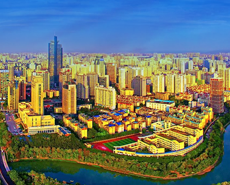
Giving best technical support for Chinese alumina industry
----Interview with Cui Decheng
Executive Vice President
Northeastern University Engineering & Research Institue Co., Ltd.
Executive Vice President
Northeastern University Engineering & Research Institue Co., Ltd.
Northeastern University Engineering & Research Institue Co., Ltd. (NEUI), which named Northeastern University Engineering & Research Institue, was established from 1994 and reorganized from 2004. NEUI is principally engaged in engineering consultation, engineering design and development of relevant new technologies and equipment for nonferrous metals industry and ferrous metals industry including mining, beneficiation, smelting and processing, etc., as well as civil architecture industry.
Asian Metal: Hello, Mr Cui! Thanks for accepting the interview. Please briefly introduce your major business.
Mr. Cui: Hello, we mainly work on engineering design and consultation and new technologies research for alumina, primary aluminum and prebaked anode industries.


Asian Metal: Please introduce some major projects you joined over the past several years.
Mr. Cui: NEUI has taken over the design of more than 100 alumina production lines in China successively, which account for about 55% of total alumina capacity and 60% of operating alumina capacity in China, from major alumina & aluminum producers such as Weiqiao Aluminum, Jinjiang Group, Nanshan Aluminum, East Hope and Wanji Aluminum, etc. Our overseas projects cover Indonesia Well Harvest Winning Alumina, Nanshan Group Bintan Alumina, Jamaica JISCO Alpert Alumina and Greece Aluminum expansion project, etc.

















